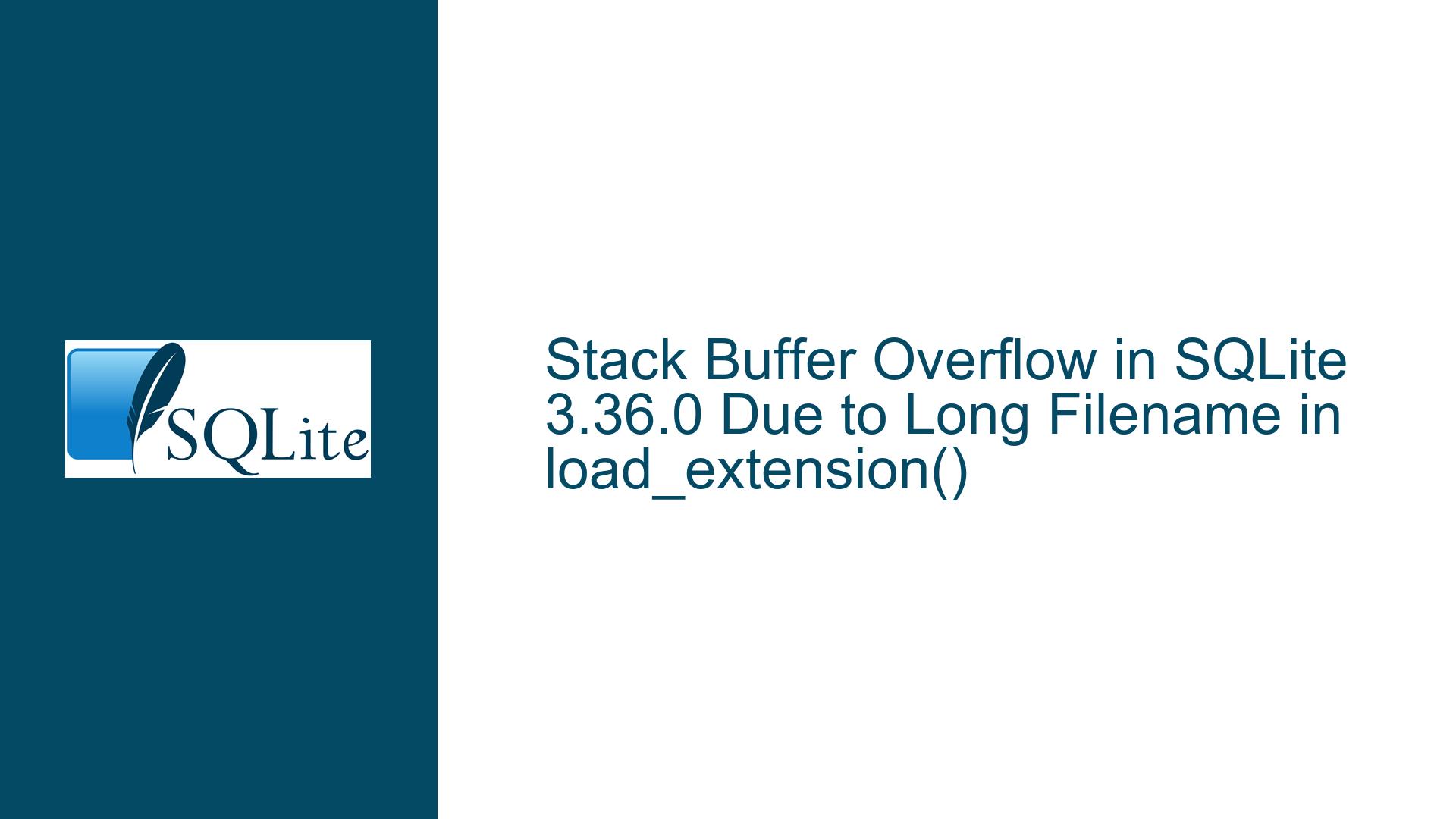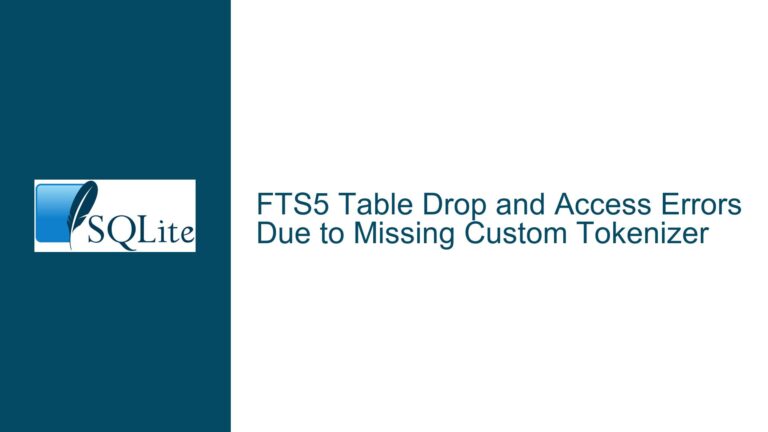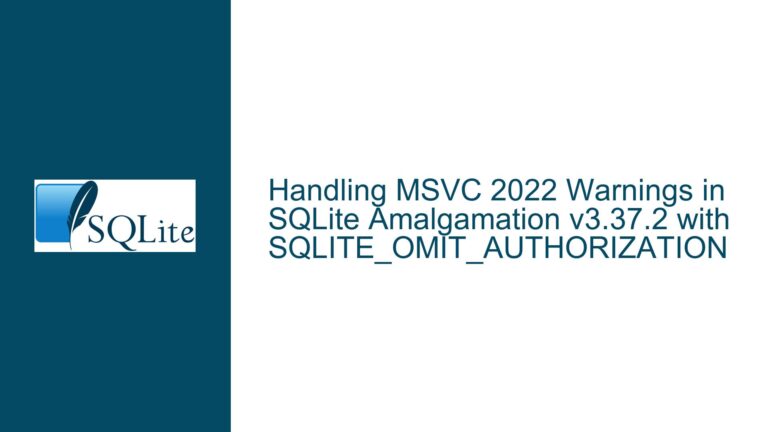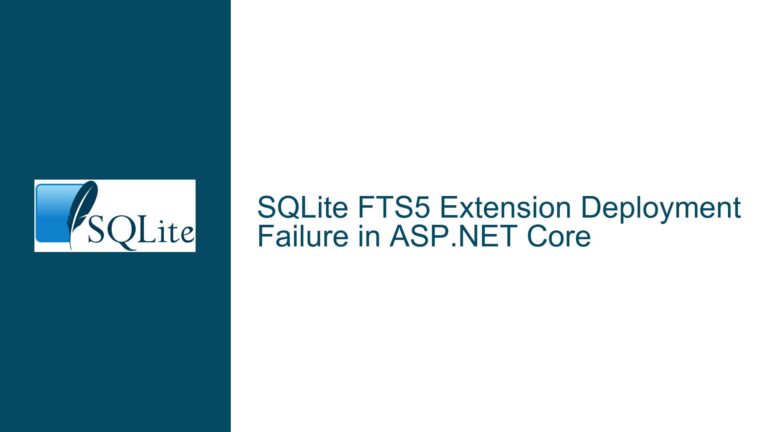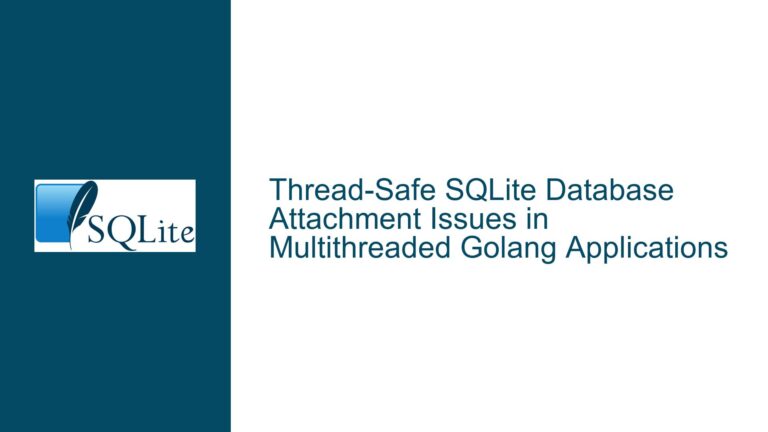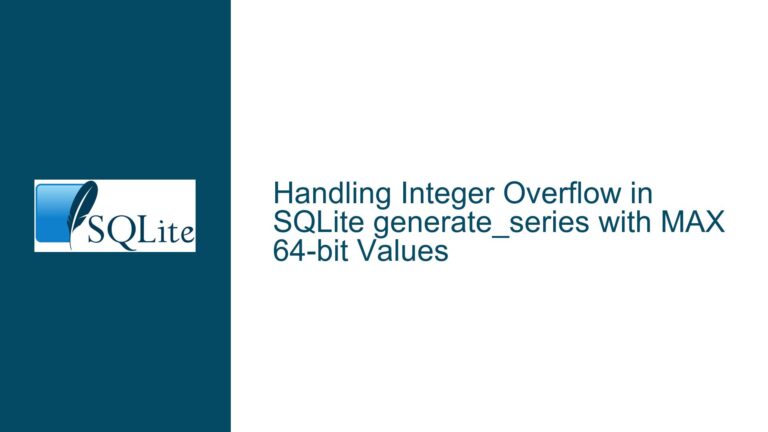Stack Buffer Overflow in SQLite 3.36.0 Due to Long Filename in load_extension()
Stack Buffer Overflow Triggered by Excessive Filename Length in load_extension()
The core issue revolves around a stack buffer overflow vulnerability in SQLite 3.36.0, specifically triggered when the load_extension() function is invoked with an excessively long filename. This vulnerability manifests as a segmentation fault or a stack overflow, depending on the environment and the tools used to detect it. The problem is rooted in the interaction between SQLite’s load_extension() function and the underlying C library’s dlopen() function, which is used to dynamically load shared libraries.
The issue arises when a malicious or malformed SQL query constructs a filename that exceeds the system’s maximum allowed length for filenames. This causes dlopen() to attempt to process an overly long path, leading to a stack buffer overflow. The overflow occurs because the filename length is not properly validated before being passed to dlopen(). This vulnerability is particularly concerning because it can be exploited to cause a denial of service (crashing the application) or potentially execute arbitrary code, depending on the system’s memory layout and protections.
The vulnerability is demonstrated in the provided SQL query, where nested hex() and randomblob() functions are used to generate an excessively long string. This string is then passed to load_extension(), which attempts to load a shared library with this invalid filename. The result is a segmentation fault or a stack overflow, as evidenced by the GDB backtrace and AddressSanitizer output.
Root Cause: dlopen() Limitations and Lack of Input Validation
The root cause of this issue lies in two main areas: the limitations of the dlopen() function in the standard C library and the lack of proper input validation in SQLite’s load_extension() function.
The dlopen() function, which is used to dynamically load shared libraries, has an undocumented limitation regarding the maximum length of the filename it can handle. When a filename exceeds this limit, dlopen() attempts to process it anyway, leading to a stack buffer overflow. This behavior is not explicitly documented in the dlopen() man pages, making it a hidden pitfall for developers who rely on this function.
In SQLite, the load_extension() function does not perform adequate validation on the filename length before passing it to dlopen(). This lack of validation allows malicious or malformed queries to trigger the stack buffer overflow. The issue is exacerbated by the fact that load_extension() is enabled by default in the SQLite command-line interface (CLI), making it easier for attackers to exploit this vulnerability in environments where the CLI is used.
The problem is further compounded by the recursive nature of the SQL query used to demonstrate the vulnerability. The nested hex() and randomblob() functions generate a string that grows exponentially in length, quickly exceeding the system’s maximum filename length. This recursive construction is not immediately obvious, making it difficult for developers to anticipate and mitigate the issue.
Mitigation Strategies and Code Fixes
To address this vulnerability, several mitigation strategies and code fixes can be implemented. The primary fix involves adding input validation to the load_extension() function to ensure that the filename length does not exceed the system’s maximum allowed length. This can be achieved by comparing the filename length to the FILENAME_MAX constant, which defines the maximum length of a filename on the system.
In the SQLite source code, this fix was implemented in check-in 01f3877c7172d522. The fix works by checking the length of the filename before passing it to dlopen(). If the filename exceeds FILENAME_MAX characters, the function returns an error without attempting to load the extension. This prevents the stack buffer overflow from occurring and ensures that the application remains stable.
Another mitigation strategy is to disable the load_extension() function by default in all SQLite applications, not just the CLI. This reduces the attack surface and makes it more difficult for attackers to exploit this vulnerability. Applications that require the use of load_extension() can explicitly enable it, but this should be done with caution and only after thorough testing.
Additionally, developers should consider using tools like AddressSanitizer to detect and diagnose stack buffer overflows and other memory-related issues. AddressSanitizer is a powerful tool that can help identify vulnerabilities during development and testing, reducing the likelihood of such issues making it into production code.
Finally, it is important to document the limitations of dlopen() and other system functions that may have undocumented constraints. This documentation should be included in the SQLite documentation and any other relevant resources to ensure that developers are aware of these limitations and can take appropriate precautions.
In conclusion, the stack buffer overflow vulnerability in SQLite 3.36.0 is a serious issue that can lead to application crashes and potential code execution. By understanding the root cause and implementing the appropriate mitigation strategies, developers can protect their applications from this vulnerability and ensure the stability and security of their systems.
